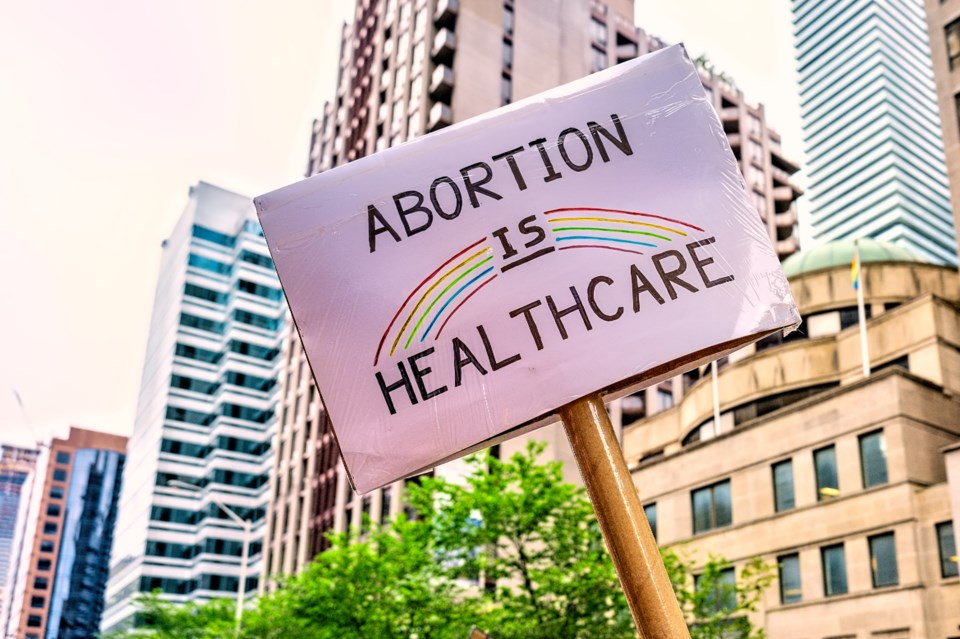If you have ever broken into a cold sweat thinking you may be pregnant or held the hand of a friend or lover who was deciding whether or not to continue a pregnancy, you know how important choice is in those situations.
In the wake of the U.S. Supreme Court’s decision last month to officially reverse Roe v. Wade, which established abortion as a constitutional right five decades ago, many in Canada have been tooting our nation’s horn for its free access to abortion.
Prime Minister Justin Trudeau gave a heartfelt speech promising to defend access to abortion here. Great.
But while experts say it is unlikely abortion could be suddenly illegal in this country, there remains no legal or legislative requirement to provide abortion services.
This means there is an uneven patchwork of services available depending on where you live.
A study by Action Canada for Sexual Health and Rights found what some folks in the Sea to Sky Corridor already know firsthand. Abortion access is limited outside of urban centres.
That should give locals pause.
If you live in Vancouver, you have plenty of choices, but an hour outside of that centre, and your options aren’t so plentiful.
Suppose you need a surgical abortion, for example. In that case, it is not currently available in Squamish (though the province and Vancouver Coastal Health say they are working to re-instate it in “rural” areas like the district).
The abortion pill, which can be taken at home, is offered by several health care providers locally, but is only available up to nine weeks of pregnancy.
“With this horrifying news out of the USA, Howe Sound Women Centre is committed to amplifying advocacy for reproductive rights. Although abortion services are available in all provinces across Canada, access is frequently difficult,” said Howe Sound Women Centre’s executive director Ashley Oakes in an email to The Squamish Chief.
“Canada has further to go in terms of access to abortion including ensuring there are no costs associated with abortions sought out of province, ensuring access to clinics in remote and rural communities, and removing any existing restrictions that require an abortion to be ‘medically necessary’ as exists in New Brunswick.”
Even when there is access, services, such as abortion, are not advertised and there is still stigma that prevents some from reaching out for information and some providers from being public about what they do.
There are also groups actively fighting to restrict abortion services in Canada.
And organizations that mascarade as help for those seeking an abortion, but are actually anti-abortion.
There are more of those so-called “crisis pregnancy centres” than abortion providers in Canada, according to the Action Canada study.
“They’re super active. And so you’re pregnant, you’re vulnerable and you see a sign on the bus that says ‘Are you pregnant, we’ll help,’ and we think okay, great, I’m going to go to this person and it turns out to be an anti-choice organization who is actually trying — actively trying — to make you miss your abortion, make you miss your window or not refer you to those services,” said Nicole Pasquino, clinical practice director with Options For Sexual Health, a sex-positive organization, which runs a clinic and other programs locally.
A 2020 study found the average gestational age at abortion decreases as access to health services increases.
Those who believe in a pregnant person’s right to choose whether or not to be pregnant must be vigilant for slips backward.
Let’s be perfectly clear:
• Abortion is health care.
• Stigma works in favour of those who are anti-choice.
• Not wanting to be pregnant is reason enough. Full stop.
Abortion should not be more or less deserved. It should not be reserved for those who are sexually assaulted or in life and death situations.
• Abortion access isn’t just an issue for the very young.
People of many ages get pregnant.
• As Pasquino also told The Squamish Chief, no method of birth control is foolproof. Thus, there will always be unplanned pregnancies and, therefore, always be abortions.
The question is only whether they are safe or not.
Squamish residents who are concerned about this issue can start by supporting the dedicated and progressive local nonprofits Options For Sexual Health and Howe Sound Women’s Centre.
~With files from James Kelly, Francesca Scala, Stephanie Paterson/The Conversation





